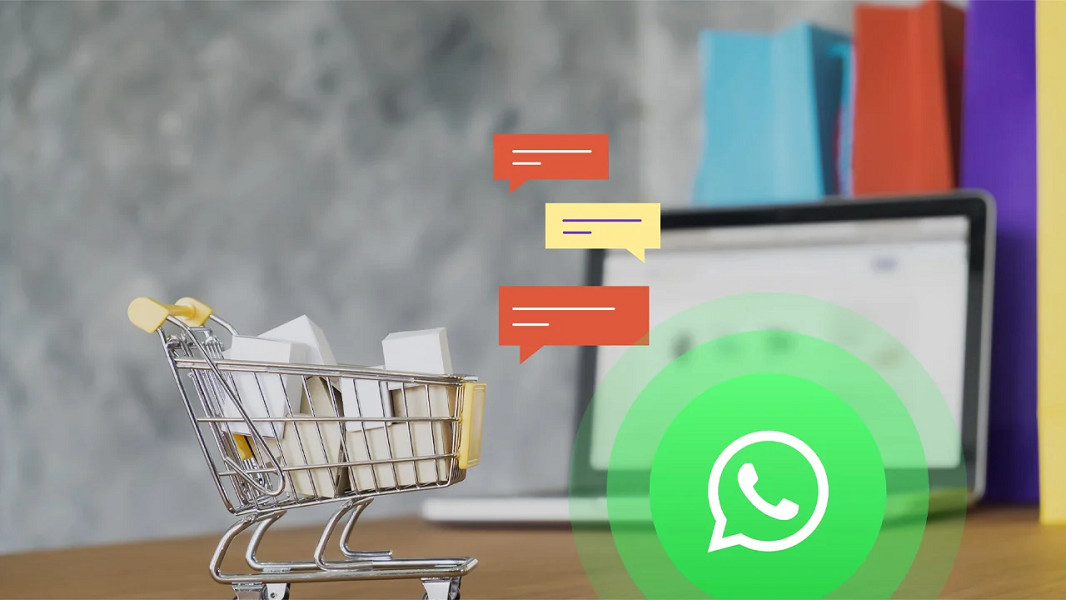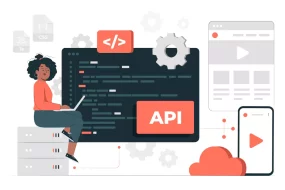
WhatsApp Business is becoming a new viral marketing tool for E-commerce businesses, helping to facilitate the sales of an increasing number of companies worldwide. If you’re not already using WhatsApp for marketing purposes, it’s time to consider changing that fact immediately
For people and businesses worldwide, WhatsApp is quickly becoming the store counter to ask questions, discuss products, and close sales.
The words of Ajit Varma, the Head of Business Products at WhatsApp, couldn’t be more accurate in this post-pandemic era.
And it says…
“As businesses continue to rapidly shift their operations online to stay connected with their customers during the ongoing pandemic, they need new digital tools to help them increase their sales and grow.”
As such, this article reveals how the most can be made of WhatsApp as a new digital tool that turns into a unique lever in helping facilitate the sales and growth of E-commerce businesses.
For most E-commerce business owners, this could only bring one thought to mind…
Can Customers Really Shop On WhatsApp, How?
As part of the upgrades that the WhatsApp Conversational Messaging Platform (CMP) has received since Facebook took over, WhatsApp introduced a new shopping tool on its platform in 2020.
This tool is known as Carts. I bet you know the regular shopping carts on E-commerce sites, don’t you?
Of course, I thought so too.
So, carts allow customers to browse business catalogs, select multiple products, and order items from businesses through direct messages.
With carts, customers can browse a catalog, select multiple products and send the order as one message to a business.
The new feature adds a shopping button to access a business catalog, which looks like a storefront icon.
When visiting a business catalog, WhatsApp users can click on the “Message a Business” button to start a conversation or use the “Add to Cart” option to place an order with the business.
Once customers have updated their cart, they can send it as a WhatsApp message to the seller.
And after sending the message, users can see the order details by tapping on the “View Cart” button in their chat window with the seller.
What’s more, WhatsApp allows businesses to receive orders through the platform, though the payments feature on WhatsApp is available in limited countries and on specific devices.
With the payments feature, one can also personally send and receive money to and from friends, and family.
And if after the fact, you choose to ask if it’s worth it when there are already so many E-commerce tools out there.
Well, here’s my answer:
The Benefits of WhatsApp For E-commerce Businesses Are Too Mouthwatering To Miss
Here’s why.
When it comes to businesses in general, given that every business needs to capture its leads, it becomes ideal that site visitors are prompted to opt-in to receive messages from them.
The same thing applies to E-commerce businesses.
WhatsApp Business can be a valuable tool for nurturing your customers when used as part of a sales strategy.
Suppose you want to remind your customers about promotions, offer accessible customer service options, or increase visibility. In that case, WhatsApp is a perfect tool for you.
Owing to the limited physical interaction between an E-commerce business and its customers, they must make their customers’ experience as easy, quick, and interactive as possible.
And with the addition of WhatsApp Business, it’s now easier to build positive customer relationships.
With WhatsApp Business, you’ll be able to offer personal customer support to your audience with automated messages and chatbot-like capabilities.
So, if you’re launching a new product, WhatsApp can automatically send the messages you’ve created to the customers you select.
And, if you have a global audience or customer base, you’ll find connecting with your international customers easy and cost-effective since WhatsApp doesn’t charge a fee for international communication.
This helps you strengthen customer relationships abroad and allows for quick problem-solving.
WhatsApp Business Also Offers Your E-commerce Store Some Special Benefits
With WhatsApp Business well integrated into your E-commerce store, now you can…
Improve your brand’s visibility.
Similar to Facebook, WhatsApp allows businesses to have a Business page on the app.
A business page for your company increases the number of possible customers who can interact with your business using the app while your profile offers important information for customers, such as location, description, website, and contact details.
And with the WhatsApp catalog tool, you can upload your products in bulk, so users can browse your offerings through the app.
This tool is easy for customers to get an idea of what they can purchase from your business.
For instance, let’s say your customers want to know what your business offers but don’t feel like Googling it. If your catalog is set up, they’ll be able to access your offerings before their attention is diverted to something else.
You can use catalogs to display a new product line or feature your most popular products to entice your audience.
Stay Connected via Stories
Over the last couple of years, we’ve seen a proliferation of “live” marketing proliferation across all social media.
From Facebook Live through to Instagram Stories, brands are increasingly using real-time storytelling to connect with their audience, build their brand and, ultimately, increase their revenue online.
While WhatsApp Stories isn’t quite as well-used as Insta Stories, it’s the fastest growing and most used format of the top four social platforms.
Automate for Quick Responses
WhatsApp Business does not only allow you to engage with customers directly, but it also allows you to automate messages using a chatbot.
That way, your audiences can have their questions answered quickly.
This means you can save a few quick replies for your customers with an interactive “FAQ” that extravagantly cuts down on having to type or copy-and-paste answers to common questions.
Strengthen Customer-Brand Relationships
WhatsApp should be considered a new platform to help strengthen bonds between your fixed customer base instead of a tool for cold calling.
Because just as Facebook requires a business to be contacted by an individual user before being able to start a conversation.
Businesses on WhatsApp can only contact users who have provided their phone numbers and have agreed to be contacted by that specific business on the platform.
So, if you have a very familiar or regular customer base, then WhatsApp as the platform is primarily suited for businesses.
The main goal should be to deepen bonds with your customers and continuously develop brand loyalty.
Stay Engaged Even on PC
Ah, yes! You definitely can use WhatsApp business on your pc.
Accessing it through your browser is straightforward, no matter the system OS or browser you use.
Plus, on the Google Chrome browser, you WhatsChrome extension that makes it super easy to run your WhatsApp Business or private WhatsApp on your desktop.
And you can also use WhatsApp Business on your desktop via the native app.
Now Here Are Some Simple WhatsApp E-commerce Use Cases For You
Businesses can use many WhatsApp E-commerce Use Cases to increase their bottom line.
For instance, with the help of the WhatsApp Business API, businesses can automate order notifications, delivery notifications, and more.
And in a world where personalized customer engagement is the cornerstone of differentiated customer experience, this helps them boost customer engagement by as much as 60%.
The very first Use Case is WhatsApp as an E-commerce shopping mall.
Customers send 60 billion messages every day!
And with WhatsApp, businesses can reach out to this large pool of customers and quickly boost their sales.
For example, with click-to-WhatsApp marketing, you can drive business acquisition.
Here’s simply how it works…
Prospects who click on an ad will receive an invite to join the conversation.
Then the critical action required of the customer is that they first agree to accept notifications from your business.
If the customer accepts, they are very likely to make a purchase.
Similarly, suppose the customer cannot make the purchase. In that case, you can always send promotion messages that will direct the customer back to your website, where they can purchase your products in the future.
Secondly, businesses can use the WhatsApp API to provide real-time support to their customers.
Even though there are often minimal opportunities to interact with customers in person these days…
With WhatsApp, businesses can easily communicate with their customers and verify their business profiles.
In addition, businesses can increase customer retention rates, and rising customer retention rates can increase profits by as much as 25%-95%.
And as you may already know, increasing customer retention is key to maintaining a competitive position in the mobile-first E-commerce market.
WhatsApp makes all these easy while allowing businesses to identify their customers and preferences.
One tool, in particular, makes this relatively easy: WhatsApp Chatbots.
Using chatbots in E-commerce business is an effective way to increase conversions because chatbots can hold fluent conversations just like an actual human.
This means that customers won’t feel as though they’re talking to a machine and can continue conversations on WhatsApp even after the customer leaves their desktop.
But that’s not all.
Chatbots are more stable and mobile-friendly than other bots.
And a WhatsApp chatbot can collect customer data, answer questions, and help customers find products on the website by providing them with personalized assistance.
These bots can also share live locations and handle customer queries, alerting them when the product they’re looking for is back in stock and sending links to track delivery.
Now, here’s the good part.
You can implement these Chatbots in your E-commerce business with little training.
And that guarantees that it won’t take long before you start seeing their value.
These are just a few of the many WhatsApp E-commerce Use Cases that make this service worth looking into.
Now, to start implementing WhatsApp in your business right away, just keep reading!
How To Set Up A WhatsApp Shop
A WhatsApp shop is an excellent way for you to sell your products and services to a worldwide audience.
It lets you reach users wherever they are and helps you build a personal relationship with your clients, making future sales more accessible.
Plus, you can use WhatsApp for free, so follow these steps to set up your store.
It’s easy, free, and convenient!
Step 1: Once you’ve created your WhatsApp store, add products and information about them to your shop’s catalog.
WhatsApp allows you to display hundreds or thousands of products without requiring a web page.
You can also use WhatsApp’s catalog feature to showcase a variety of goods without having to send each product individually.
Collections are also easy to manage, so you can update them as needed. For example, if you sell products that aren’t listed, you can edit them with a click.
Step 2: Set up an automated messaging system for your shop to make selling products easier.
The chatbot in WhatsApp allows you to personalize conversations and make the buying experience as seamless as possible.
WhatsApp’s chatbot makes commerce more effortless than ever! As a result, this app has become an excellent retail destination for many businesses and users.
Once you’ve set up your WhatsApp store, the next step is …
Step 3: Add a reply button for your customers to click on.
These buttons will appear in customer chats and let users choose which options they want to receive or accept.
You can also use the reply button if you have a payment option available.
If you’re looking to create a shop on WhatsApp, these three steps are helpful.
Once your account is set up, you can link your WhatsApp business account to your Facebook Page or Instagram profile.
This way, customers can contact you through the phone number you provide. And they can also send messages directly to you via WhatsApp.
Suppose you don’t want to be hassled with your Facebook page. In that case, you can also sync your information with your WhatsApp Business account. After all, you’ll be able to reply to customers using your browser.
This can save you a lot of time, and If you’re a micro-business, you’ll be able to handle all of the messaging for your customers.
Moving on, you might wonder, but must it be WhatsApp?
Well…
There Are Alternatives To WhatsApp, But Are They Worth It?
The Facebook-owned messaging service was a popular choice for business and personal communication until Facebook privacy issues became a thing of worry for most of its product users.
On this note, it is a good idea to find an alternative based on your personal needs before deciding whether to leave.
So, as far as privacy is concerned, the variety of WhatsApp alternatives to consider are stated below.
Firstly, if you’re using an Android device, you’ve probably already heard about Signal.
Signal was created by Brian Acton, the co-founder of WhatsApp.
The Signal app uses the same principle as WhatsApp and requires a phone number to sign up.
While it lacks the privacy features of WhatsApp, its interface and Chrome plug-in make it an attractive option for many users.
On the other hand,
Some users consider Telegram the best WhatsApp alternative, and for a good reason. Not only can you create groups with up to 200,000 people, but you can also send and receive up to 2GB of files. Some even have automation capabilities.
Another great WhatsApp alternative is Threema, which is entirely anonymous.
Threema
Threema does not require a phone number and accepts anonymous payments via Bitcoin. In addition, it uses end-to-end encryption so that no one can spy on your conversations.
What’s more? The app is available as a web client and can be used on mobile devices.
Its standard messaging features include voice calls, video calls, file sharing, lists, and the ability to add contacts. It’s also available for desktop computers and iPhones.
Users can also use the desktop version, which costs $3.
Now, while it lacks the name recognition of WhatsApp, its features make it a worthy choice for people who want more privacy and security.
Element
Element is another excellent WhatsApp alternative if you value privacy.
It offers the same features as WhatsApp but costs about three euros.
This app offers privacy, data security, and convenience. As a result, it’s the most secure alternative to WhatsApp.
It’s designed to facilitate communication and collaboration and is accessible on desktops.
Plus, it’s available for iPhones, Android devices, and other platforms. This makes Element the best WhatsApp alternative.
Now contrary to issues as regards privacy on WhatsApp.
The platform has end-to-end encryption capabilities that ensure privacy and security.
Anyone can easily send sensitive information to customers because the messages are encrypted and sent to the “JUNK” folder.
They’re not even saved on the WhatsApp servers at all.
So, going beyond the privacy scare, most people who pivot their instant messaging app of preference off WhatsApp always have more reasons to return than otherwise.
And the reach?
Or is it how it enables end-to-end sales processes through WhatsApp conversations, so businesses can easily attract more customers?
The high customer satisfaction levels of conversational commerce have made this new medium a popular place to conduct transactions.
And at the forefront of that is where WhatsApp for Business has its most vital point.
So, take your time to consider if there’s any perfect alternative to WhatsApp out there when it comes to business integrations.
However!
If you have an eye on the positives of this great app, then you know it’s time you start making smart moves in your business.
SO…
Start Integrating WhatsApp Into Your E-commerce Ecosystem Today
Customers who visit your E-commerce website may have questions and concerns about your products or services.
Dedicated customer support teams must be available around the clock to answer these questions.
WhatsApp E-commerce Integration solves this problem, enabling businesses to sell goods and services using the messaging platform.
For instance, by integrating a chatbot into your E-commerce platform, your customers can send you messages with questions and concerns and get quick responses to their questions.
This way, they can purchase the product or service or make changes to their reservations.
This eliminates the need for customers to open multiple apps to access their accounts.
And with this feature, businesses can increase their sales by enhancing customer experiences.
These benefits are just some of the benefits WhatsApp E-commerce Integration brings to your business.
And you can start reaping the benefits immediately if only you begin making the most of the app in your business today.
Do you have any more questions concerning WhatsApp business for E-commerce purposes?
Feel free to ask in the comments section below.







